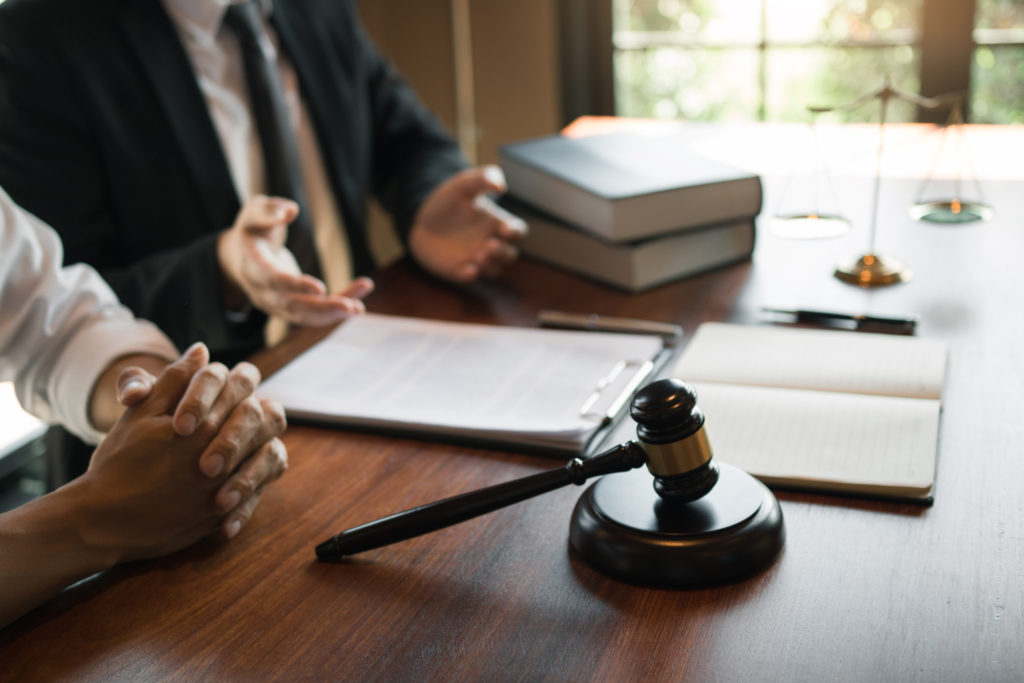Last Updated on by Adam Rosenblum Esq.
- What is a Pretrial Conference?
- Can I Handle the Pretrial Conference Without an Attorney?
- Why Does NYS Have Pretrial Conferences for Traffic Tickets?
- Do I Have to Show up to the Pretrial Conference?
- Advice for Handling Pretrial Conferences in NY
- Who Should I Contact for Help at My Pretrial Conference for a NY Traffic Ticket?
In 2012, New York State changed the procedure for how it handles not guilty pleas entered on speeding tickets. Originally, a person would send back the ticket with a plea via the mail and the court would respond with a notice of the trial date to the driver. This procedure is still in place at the Traffic Violations Bureau (TVB) of NYC. However, courts outside the TVB have an extra step called a pretrial conference, which is scheduled by the court upon receipt of the not guilty plea.
What is a Pretrial Conference?

At a pretrial conference, the driver (or their attorney if they have one) will meet with the prosecutor, who may offer to negotiate the ticket in exchange for a guilty plea (i.e. a plea bargain or plea deal). These are usually take-it-or-leave-it deals, and it can be hard for an average person who handles it on their own to get a better offer. An attorney is more likely to get a good deal that could involve less points and possibly even no points and a reduced fine (see below).
The driver will not be asked to provide testimony or be allowed to submit evidence—such things will occur at the full trial if the deal is not taken. If the driver takes the deal, then he/she will plead guilty to a lesser offense than the one originally issued. If the driver does not like the deal, then the meeting is over and a trial date will be set.
Can I Handle the Pretrial Conference Without an Attorney?
As mentioned, a person who hires an attorney to represent him/her at the pretrial conference will not have to show up in person. The attorney can handle all the matters of negotiating with the prosecutor. There are other reasons why a person should hire an attorney to handle a speeding ticket in New York. For example, an attorney is usually far more likely to get a good deal than the driver. This is because:
- A good attorney has carefully honed his/her negotiating skills.
- The attorney knows the law better than the average person.
- An experienced attorney may have a positive rapport with the prosecutor (they may have worked together before) and can use that relationship to his/her advantage.
Another issue that most people don’t think about is the fact that if the driver handles the pretrial conference on his own, the prosecutor may ask him questions that can lead to him incriminating himself (providing evidence or admissions of guilt, for example) and he might not even realize it! Having an attorney handle the pretrial conference avoids that possibility.
In some cases, it may be possible to get a speeding ticket dismissed. If so, it does not make sense to accept the deal offered at the pretrial conference. However, the average person is not likely to be able to accurately determine that on his/her own. A skilled attorney can examine the facts of the case to determine whether a plea deal or trial makes the most sense for the driver.
Why Does NYS Have Pretrial Conferences for Traffic Tickets?
Prior to the use of pretrial conferences, police officers would show up to court in anticipation of trials challenging tickets they had issued. However, prior to the trial, prosecutors would meet with drivers and sometimes offer plea bargains. If a driver took the deal, it meant the officer had been waiting at court for nothing. One of the reasons New York began the practice of having pretrial conferences for traffic tickets is to prevent police officers from spending time at court for drivers who would rather take a plea deal.
Do I Have to Show up to the Pretrial Conference?
Attending a pretrial conference is mandatory! Even if the driver intends to fight the ticket at trial, he/she must appear at the conference, which means he/she will have to show up to court twice for the same ticket. The only way to avoid taking time off from work to appear at a pretrial conference is to hire an attorney. A licensed traffic ticket attorney can attend a pretrial conference in lieu of the driver and negotiate the ticket on his/her behalf. In addition to saving the driver time, hiring an attorney also ensures he/she gets the best possible deal from a prosecutor.
Advice for Handling Pretrial Conferences in NY
Be polite. Although the prosecutor has likely determined what he/she will offer before the driver has walked through the door, being rude or disrespectful can only make things worse, especially if the ticket goes to trial.
Don’t say too much. Do not admit to committing a traffic violation to a prosecutor. Again, if the ticket goes to trial, this can be used against the driver (remember, the prosecutor does not represent the driver’s interest and there is no attorney-client privilege).
Hire an attorney. A driver who wants to get the best possible deal should seriously consider hiring professional legal representation. An attorney can explain ahead of time whether or not to expect a good deal at the conference. Moreover, he/she can assess the driver’s chances of winning at trial. Lastly, as mentioned, an attorney can attend the pretrial conference on behalf of the driver.
Who Should I Contact for Help at My Pretrial Conference for a NY Traffic Ticket?
If you or a loved one has been caught speeding, consult with an attorney to help avoid the costs associated with a ticket. The lawyers at Rosenblum Law are skilled New York traffic ticket attorneys who are experienced in getting the best deals at pretrial conferences for speeding tickets as well as other driving-related offenses. Call 888-883-5529 or email Rosenblum Law today for a free consultation about your case.
As the founding attorney of Rosenblum Law, Adam has built a firm that prioritizes client success and legal excellence. His leadership and vision have established Rosenblum Law as a premier legal practice for traffic and criminal defense, ensuring that clients receive the highest level of advocacy and support.
